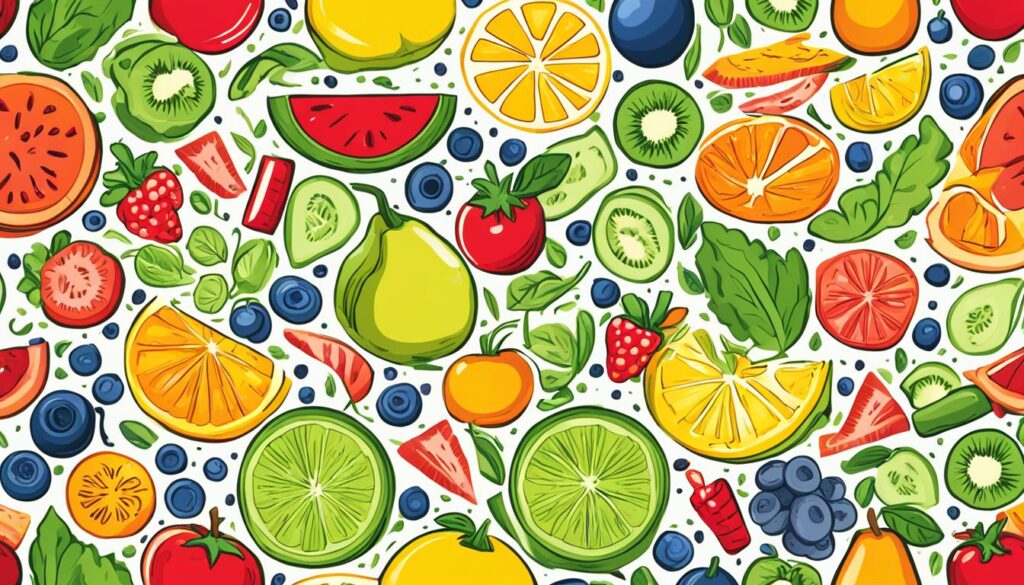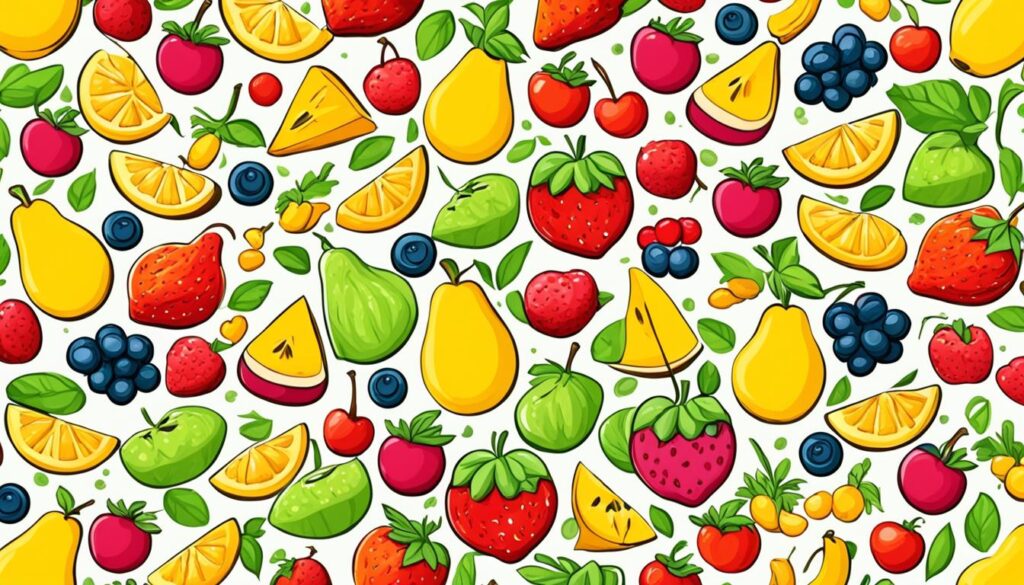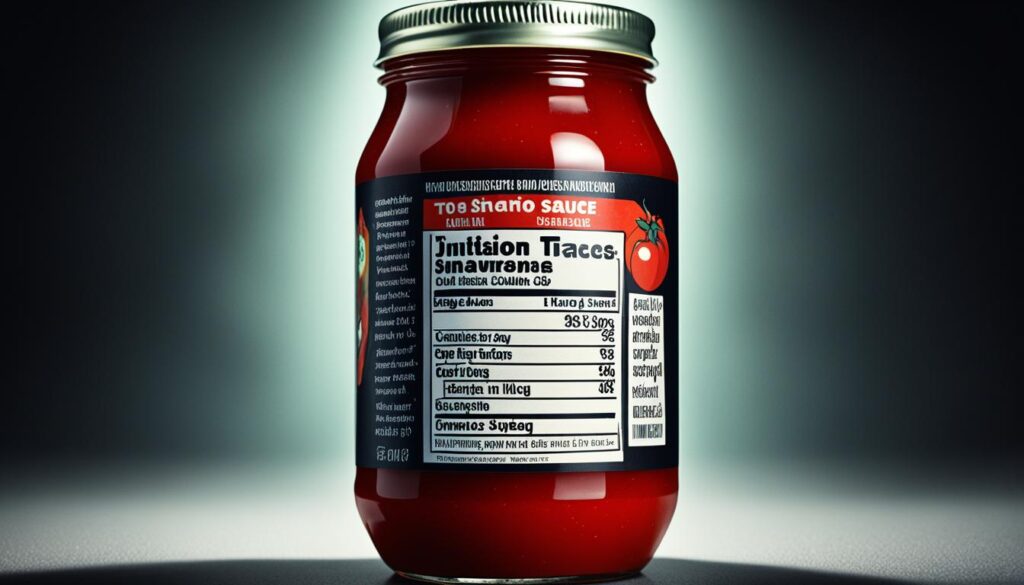Medically reviewed by Dr Chandril Chugh,
Renowned Neurologist and American Trained Specialist
Eating too much added sugar can have negative effects on your health, including obesity, type 2 diabetes, heart disease, cancer, and tooth decay. Most Americans consume more added sugar than recommended, with the average intake ranging from 55-92 grams per day. It’s time to cut down on sugar and boost your health!
Table of Contents
ToggleIn this article, we will explore 8 effective ways to reduce your sugar intake and improve your overall well-being. By incorporating these strategies into your daily life, you can make significant progress towards a healthier and more balanced diet.
Reducing sugar intake is crucial for maintaining a healthy weight and reducing the risk of chronic diseases. The Dietary Guidelines for Americans recommend getting less than 10% of your daily calories from added sugars, while the World Health Organization suggests aiming for less than 5% for optimal health. With these guidelines in mind, let’s dive into the practical steps you can take to cut back on sugar.
Cut back on sugary drinks
Sugary drinks, such as sodas, sports drinks, and sweetened teas, are a major source of added sugars in the American diet. These beverages not only contribute to weight gain but also have been linked to various health problems, including obesity, type 2 diabetes, and heart disease.
To reduce your sugar intake and make healthier drink choices, consider the following options:
1. Water
Water is the best choice when it comes to staying hydrated without adding any extra sugar or calories. It is refreshing, readily available, and vital for your overall health.
2. Unsweetened sparkling water
If you’re looking for some fizz in your drinks, consider unsweetened sparkling water. It provides a bubbly sensation without the added sugars found in carbonated sodas.
3. Herbal teas
Herbal teas are a great alternative to sugary beverages as they offer various flavors and can be enjoyed hot or cold. They are often naturally caffeine-free, providing a soothing and hydrating option.
4. Black or green tea
Black and green teas can be enjoyed unsweetened or with a splash of lemon for added flavor. These teas contain antioxidants and offer a mild stimulant effect from the natural caffeine they contain.
5. Coffee
Coffee can be a part of a healthy diet, especially when consumed in moderation. Opt for black coffee or add a small amount of unsweetened milk or a natural sweetener like stevia instead of sugar.
By choosing these healthier drink options, you can effectively reduce your intake of added sugars and make positive changes to your overall well-being.

Avoid sugary desserts
Most desserts are high in sugar and provide little nutritional value. They can contribute to cravings and overconsumption of sugar. Instead of indulging in sugary desserts, try these healthier alternatives:
- Fresh fruit: Enjoy nature’s sweet treats like berries, melons, or sliced apples. They offer a refreshing burst of flavor along with vitamins, minerals, and fiber.
- Greek yogurt with cinnamon or fruit: Mix creamy Greek yogurt with a sprinkle of cinnamon or add your favorite fruits for a satisfying and protein-packed dessert.
- Baked fruit with cream: Roast fruits like peaches, pears, or apples in the oven, then top them with a dollop of unsweetened whipped cream for a warm and comforting treat.
- Dark chocolate (70% cocoa or higher): Indulge in a square or two of dark chocolate, which is rich in antioxidants and lower in sugar compared to milk chocolate.
These alternatives not only reduce sugar intake but also provide additional nutrients and fiber. So, satisfy your sweet tooth while making healthier choices!

Check out the table below for a comparison of nutritional information:
| Dessert | Calories | Sugar (g) | Fiber (g) |
|---|---|---|---|
| Fresh Fruit Salad | 100 | 15 | 3 |
| Greek Yogurt with Fruit | 150 | 10 | 2 |
| Baked Apple with Cream | 200 | 20 | 4 |
| Dark Chocolate (70% cocoa or higher) | 80 | 5 | 2 |
Avoid sauces with added sugar
When it comes to reducing hidden sugars in your meals, sauces can be a sneaky culprit. Many commonly used sauces, such as ketchup, barbecue sauce, and sweet chili sauce, contain added sugar, which can contribute to increased sugar intake without you even realizing it.
To make healthier choices, it’s essential to read labels and be aware of the amount of sugar in the sauces you use. Look for condiments labeled “no added sugar” or “sugar-free” to ensure you’re not consuming unnecessary sugars. These options can help you enjoy the flavors you love while avoiding the negative health effects of hidden sugars.
You might be surprised to know that there are plenty of other delicious alternatives for seasoning your food without relying on sauces loaded with added sugar. Consider using herbs, spices, chili, mustard, vinegar, pesto, mayonnaise, or lemon and lime juice as flavorful substitutes. These alternatives not only enhance the taste of your meals but also provide a healthier and sugar-free option for seasoning.
Benefits of choosing no added sugar condiments:
- Reduced hidden sugars in your meals
- Healthier alternative to traditional sauces
- Enhanced flavors without the negative health effects
- Increased control over your sugar intake
By being mindful of the sauces you use and opting for no added sugar condiments, you’re taking a significant step toward reducing your overall sugar consumption and supporting a healthier lifestyle.
| Sauce | Sugar Content per serving (1 tbsp) |
|---|---|
| Ketchup | 4.0g |
| Barbecue Sauce | 6.5g |
| Sweet Chili Sauce | 7.0g |

With the right choices, you can enjoy delicious meals without the added sugars. Take control of your sugar intake by understanding what’s in your condiments and choosing healthier alternatives.
Eat full-fat foods
When it comes to choosing between low-fat and full-fat options, going for full-fat foods can actually be more beneficial for your health. Contrary to popular belief, low-fat versions of various foods often contain higher levels of sugar and sometimes even more calories than their full-fat counterparts. By opting for full-fat foods, not only can you reduce your sugar intake, but you can also experience a greater sense of satisfaction.
Before making your selection, it’s crucial to read ingredient lists carefully. While full-fat options may bring certain advantages, it’s still important to assess the overall nutritional value of the product. Pay attention to the quality of fats present and make sure you are choosing products that are minimally processed and contain no artificial additives.
Benefits of Full-Fat Foods
Choosing full-fat foods over their low-fat counterparts can offer several benefits:
- Increased Satiety: Full-fat foods can help you feel more satisfied after a meal, reducing the likelihood of overeating or snacking on sugary treats.
- Improved Taste and Texture: Full-fat options often have a richer flavor and creamier texture, enhancing the overall enjoyment of meals.
- Nutrient Absorption: Certain vitamins, such as vitamins A, D, E, and K, are fat-soluble, meaning they require the presence of fat for optimal absorption. Consuming full-fat foods can help ensure proper nutrient uptake.
- Stabilized Blood Sugar Levels: The combination of fat and protein found in full-fat foods can slow down the absorption of carbohydrates, preventing rapid spikes in blood sugar levels.
- Healthy Hormone Production: Adequate fat intake is essential for the production of hormones, including those responsible for managing appetite, mood, and energy levels.
While full-fat foods can be a healthier choice in terms of sugar intake, it’s still essential to consume them in moderation as part of a balanced diet. Incorporate a variety of nutrient-dense whole foods to ensure you’re meeting all your nutritional needs.
| Low-Fat Foods | Full-Fat Foods |
|---|---|
| Reduced fat content | Natural fat content |
| Additional sugar and artificial additives | Minimal or no added sugars and artificial additives |
| May lack flavor and texture | Richer flavor and creamier texture |
| Can leave you feeling unsatisfied | Promotes a sense of satiety |
| Potential nutrient deficiencies | Aids in the absorption of fat-soluble vitamins |
Eat whole foods
Ultra-processed foods have become increasingly prevalent in the American diet, and they are a major source of added sugars. Unfortunately, these foods are often high in sugar, salt, and unhealthy additives, which can negatively impact overall health. To reduce your added sugar intake and take control of your diet, it’s essential to prioritize whole foods in your meals.
Whole foods, such as fresh fruits, vegetables, legumes, whole grains, and lean meats, offer numerous benefits. They are rich in essential nutrients, fiber, and antioxidants, and they provide a satisfying and nourishing meal experience. By cooking from scratch and incorporating whole foods into your diet, you can enjoy delicious meals that support your health and well-being.
Simple preparations using whole foods can yield fantastic results, both in taste and nutrition. For example, marinated meats cooked on the grill or roasted vegetables seasoned with herbs and spices can be incredibly flavorful. By focusing on whole foods and enjoying the process of cooking, you can create meals that are not only low in added sugars but also enjoyable for the whole family.

Benefits of Whole Foods:
- Rich in essential nutrients and antioxidants
- High in fiber, aiding digestion and promoting satiety
- Promote a healthy weight and reduce the risk of chronic diseases
- Provide a sense of satisfaction and enjoyment in meals
Check for sugar in canned foods
Canned foods can be a convenient option for quick and easy meals, but they can also contain hidden sugars. This is particularly true for canned foods that are packed in syrup. To reduce your sugar intake, it’s important to check the labels and choose canned foods that are labeled “packed in water” or “no added sugar”. These options can help you avoid the extra sugars often found in canned products.
In addition to checking the labels, there’s another simple step you can take to further reduce the amount of added sugar in canned fruits or vegetables. Before consuming them, make sure to rinse them thoroughly under water. This can help remove some of the excess sugar that may be present on the surface of the food.
By being diligent about checking labels and rinsing canned foods, you can make more informed choices and reduce your hidden sugar intake.
Here is an example of how you can make a better choice when choosing canned foods:
| Product | Sugar Content per Serving |
|---|---|
| Canned Peaches in Syrup (Regular) | 20g |
| Canned Peaches in Water (No Added Sugar) | 0g |
| Canned Green Beans | 2g |
| Canned Green Beans (No Added Sugar) | 0g |
As you can see from the table above, simply choosing canned fruits and vegetables without added sugar can significantly reduce your sugar intake. So, remember to read those labels and opt for no added sugar options when possible.
Be careful with “healthy” processed snack foods
When looking for a quick snack, it’s important to be cautious of so-called “healthy” processed options. These snacks may be marketed as nutritious, but they can often be loaded with hidden sugars that can derail your efforts to reduce sugar intake. Here are some examples of processed snack foods that may contain as much sugar as chocolate and candy bars:
- Granola bars
- Protein bars
- Dried fruit
While these snacks may seem like a convenient and healthy choice, it’s important to read the labels and be aware of the sugar content. Opting for lower-sugar alternatives can help you satisfy your cravings without the added sweeteners. Here are some healthier snack options to consider:
| Snack Option | Sugar Content |
|---|---|
| Nuts and seeds | Minimal or no added sugar |
| No-sugar-added jerky | No added sugar |
| Hard-boiled eggs | No added sugar |
| Fresh fruit | Naturally occurring sugars |
These options are not only lower in sugar but also provide essential nutrients and a satisfying crunch or sweetness. By making smarter choices when it comes to snacks, you can be more mindful of hidden sugars and work towards a healthier lifestyle.
Conclusion
Reducing sugar intake is not only beneficial for your overall health but also plays a crucial role in maintaining a balanced diet. By cutting down on sugar, you can experience a wide range of health benefits. One of the key advantages is weight loss, as excessive sugar consumption is closely associated with obesity. Moreover, reducing sugar can lead to improved skin health, as it helps prevent the formation of collagen-damaging compounds.
Another important benefit of cutting sugar is enhanced mood stability. High sugar intake can result in energy crashes and mood swings, while a balanced diet can promote mental well-being and emotional stability. Additionally, by reducing sugar, you can lower inflammation in the body, which is a contributing factor to various chronic diseases.
One of the most significant advantages of reducing sugar intake is the reduced risk of developing type 2 diabetes. A high intake of sugar can lead to insulin resistance and impaired glucose metabolism, while cutting back on sugar can help prevent these conditions.
To reduce your sugar intake and maintain a balanced diet, it’s essential to take a gradual approach. Start by reading product labels to identify hidden sugars and opt for whole foods whenever possible. Plan your meals in advance to avoid sugary snacks and incorporate alternatives like fresh fruits, nuts, and seeds. By making these changes, you can achieve a healthier balance in your diet and improve your overall well-being.
FAQ
How can I reduce sugar intake in my diet?
There are several effective ways to cut down on sugar in your diet. Some strategies include avoiding sugary drinks, opting for healthier drink options, avoiding sugary desserts, choosing sauces with no added sugar, eating full-fat foods instead of low-fat versions, cooking from scratch using whole foods, checking for sugar in canned foods, being cautious with “healthy” processed snack foods, and gradually reducing sugar intake while focusing on whole foods and meal planning.
How can I reduce sugar in my drinks?
To reduce sugar in your drinks, it’s best to avoid sugary beverages such as sodas, sports drinks, and sweetened teas. Instead, opt for healthier drink options like water, unsweetened sparkling water, herbal teas, black or green tea, and coffee. These alternatives can help you cut down on added sugars and contribute to better health.
What are some alternatives to sugary desserts?
Instead of sugary desserts, try healthier options like fresh fruit, Greek yogurt with cinnamon or fruit, baked fruit with cream, or dark chocolate (70% cocoa or higher). These alternatives not only reduce sugar intake but also provide additional nutrients and fiber, making them a better choice for your overall health.
How can I avoid sauces with added sugar?
Many commonly used sauces contain added sugar, but you can reduce hidden sugars in your meals by reading labels and choosing condiments labeled “no added sugar.” Other options for seasoning food include herbs, spices, chili, mustard, vinegar, pesto, mayonnaise, and lemon or lime juice, which add flavor without unnecessary sugar.
Should I choose full-fat or low-fat foods to reduce sugar intake?
In some cases, choosing full-fat foods can help reduce sugar intake. Low-fat versions of foods often contain more sugar and sometimes more calories than their full-fat counterparts. However, it’s important to read ingredient lists to ensure the better choice is made and consider the overall nutritional profile of the food.
How can eating whole foods help reduce added sugar intake?
Ultra-processed foods, which often contain high amounts of sugar, salt, and unhealthy additives, are a major source of added sugars in the American diet. Cooking from scratch using whole foods like fruits, vegetables, legumes, whole grains, and meat can help reduce added sugar intake. Simple preparations like marinated meats and roasted vegetables can yield delicious results without the excess sugar found in processed foods.
How can I check for sugar in canned foods?
Some canned foods, particularly those packed in syrup, can contain added sugars. To reduce sugar intake, opt for canned foods labeled “packed in water” or “no added sugar.” Additionally, rinsing canned fruits or vegetables before eating can help remove some of the added sugar.
What are some healthier alternatives to processed snack foods?
Processed snack foods marketed as healthy can still be high in sugar. Some healthier low-sugar snack options include nuts and seeds, no-sugar-added jerky, hard-boiled eggs, and fresh fruit. These alternatives provide nutrients and can satisfy your cravings without the excessive sugar content found in many processed snacks.
What are the health benefits of reducing sugar intake?
Reducing sugar intake can have numerous health benefits, including weight loss, improved skin health, mood stability, reduced inflammation, and a lower risk of type 2 diabetes. By gradually cutting sugar, reading labels for hidden sugars, focusing on whole foods, and planning meals to avoid sugary snacks, you can achieve a healthier balance in your diet and overall well-being.
